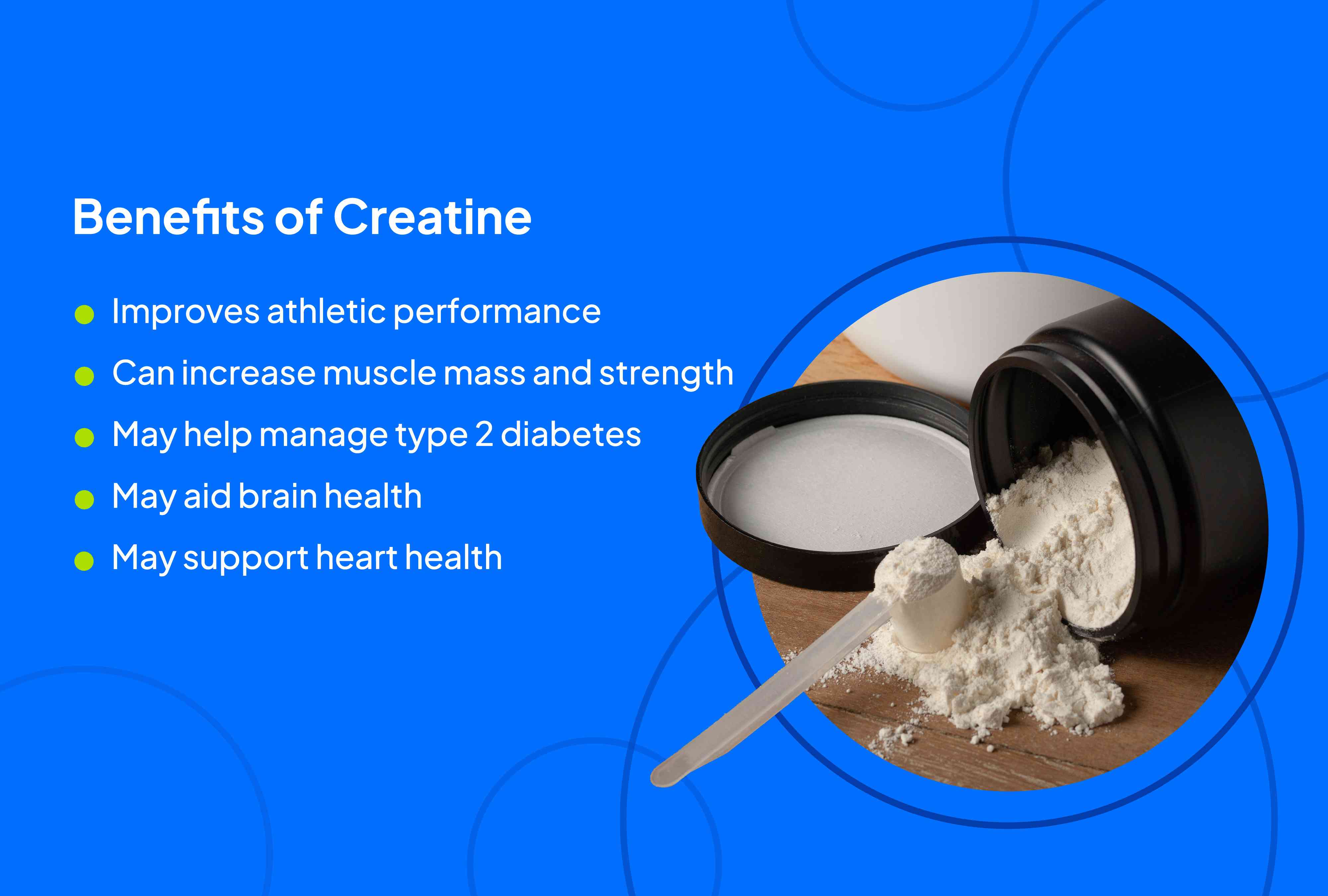What Is Creatine? A Guide To Its Benefits And Risks

Table of Contents
Creatine is a naturally occurring organic compound primarily found in skeletal muscle. It plays a vital role in energy production, particularly during high-intensity activities. While your body produces some creatine, you can also obtain it through dietary sources like red meat and fish, though supplementation is often necessary to significantly increase muscle creatine stores. This article will examine the science-backed benefits, potential risks, and practical guidelines for safe and effective creatine supplementation.
Understanding Creatine: How it Works in Your Body
Creatine's power lies in its ability to boost adenosine triphosphate (ATP) production within your muscles. ATP is the primary energy currency of the body, fueling muscle contractions. Creatine is stored in muscles as creatine phosphate (CrP), which acts as a quick energy reserve. During high-intensity exercise, when ATP levels decline rapidly, CrP donates a phosphate group to ADP (adenosine diphosphate), quickly regenerating ATP. This replenishment allows for more explosive power and improved performance during short bursts of intense activity.
Creatine supplementation increases the saturation of creatine stores in your muscles. This increased availability of creatine phosphate translates directly into enhanced energy production capacity. While several types of creatine exist (e.g., creatine ethyl ester, creatine hydrochloride), creatine monohydrate remains the most extensively researched and proven effective form. Its high bioavailability and consistent results make it the gold standard for supplementation.
- Creatine is stored in muscles as creatine phosphate.
- Creatine phosphate helps regenerate ATP during high-intensity exercise.
- Increased creatine stores lead to increased power output and improved performance.
- Creatine monohydrate offers superior absorption and efficacy compared to other forms.
Benefits of Creatine Supplementation: Science-Backed Advantages
Numerous studies support the benefits of creatine supplementation for various aspects of physical performance and even cognitive function. Let's explore these advantages:
-
Increased Strength and Power: Creatine supplementation has been consistently shown to enhance strength and power output, particularly in activities involving short bursts of high-intensity exercise like weightlifting, sprinting, and jumping. Studies have demonstrated significant increases in 1-rep max lifts and overall strength gains.
-
Enhanced Muscle Growth (Hypertrophy): Creatine's role in increasing cellular hydration and promoting protein synthesis contributes to muscle hypertrophy (muscle growth). This is particularly evident when combined with a resistance training program.
-
Improved High-Intensity Exercise Performance: Creatine's ability to rapidly replenish ATP levels translates into improved performance during high-intensity interval training (HIIT) and other anaerobic activities. This leads to increased repetitions, heavier weightlifting, and faster sprint times.
-
Potential Cognitive Benefits: Emerging research suggests that creatine may offer cognitive benefits, potentially improving memory and learning abilities, though more research is needed in this area.
Potential Risks and Side Effects of Creatine: Addressing Concerns
While generally safe, creatine supplementation can cause some side effects, most of which are mild and temporary:
-
Water Retention: Creatine draws water into muscle cells, leading to temporary weight gain (mostly water weight) and bloating. This is a common side effect and not a cause for concern.
-
Gastrointestinal Issues: Some individuals experience mild gastrointestinal discomfort, such as stomach upset or diarrhea, particularly when starting supplementation. This is usually resolved by gradually increasing dosage or taking creatine with food.
It's crucial to address common misconceptions: Creatine does not cause kidney or liver damage when used responsibly and with adequate hydration. Studies have consistently refuted these claims, showing no adverse effects on kidney or liver function in healthy individuals.
- Water retention leading to temporary weight gain.
- Bloating and stomach upset in some individuals.
- No evidence of kidney or liver damage with proper usage and hydration.
- Importance of following recommended dosage and staying well-hydrated.
How to Use Creatine Effectively: A Practical Guide
For optimal results, follow these guidelines:
-
Dosage: A typical effective dose is 3-5 grams of creatine monohydrate per day. A loading phase (higher dosage initially) is not necessary for most individuals.
-
Timing: Creatine can be taken anytime, with or without meals. Many find it convenient to mix it with a protein shake or a carbohydrate-rich drink to enhance absorption.
-
Consistency: Consistency is key. The benefits of creatine are best observed with continuous supplementation. Don't expect immediate results; consistency over several weeks is crucial for optimal effects.
-
Combine with a healthy diet and exercise routine: Creatine is a supplement, not a magic bullet. It works best when combined with a balanced diet, adequate hydration, and a regular exercise program.
Making Informed Decisions about Creatine
In conclusion, creatine supplementation offers a range of scientifically-backed benefits for athletic performance and muscle growth, with mild and typically temporary side effects. When used responsibly and with adequate hydration, creatine is generally safe and effective. However, it’s crucial to consult with a healthcare professional or registered dietitian before starting any new supplement regimen, particularly if you have pre-existing health conditions. Learn more about the potential of creatine for your fitness goals by researching further or consulting a healthcare professional. Unlock your strength potential with creatine!

Featured Posts
-
 Dodgers Left Handed Hitters A Look At Their Recent Slump And Potential For Improvement
May 15, 2025
Dodgers Left Handed Hitters A Look At Their Recent Slump And Potential For Improvement
May 15, 2025 -
 La Fire Victims Face Price Gouging Reality Tv Stars Allegations
May 15, 2025
La Fire Victims Face Price Gouging Reality Tv Stars Allegations
May 15, 2025 -
 Paddy Pimblett Responds To Critics After Ufc 314 Victory Over Michael Chandler
May 15, 2025
Paddy Pimblett Responds To Critics After Ufc 314 Victory Over Michael Chandler
May 15, 2025 -
 Dodgers Kims Power Display Homer And Two Steals Secure Oklahoma City Doubleheader Sweep
May 15, 2025
Dodgers Kims Power Display Homer And Two Steals Secure Oklahoma City Doubleheader Sweep
May 15, 2025 -
 Butlers Big Game Golden State Warriors Defeat Houston Rockets
May 15, 2025
Butlers Big Game Golden State Warriors Defeat Houston Rockets
May 15, 2025
